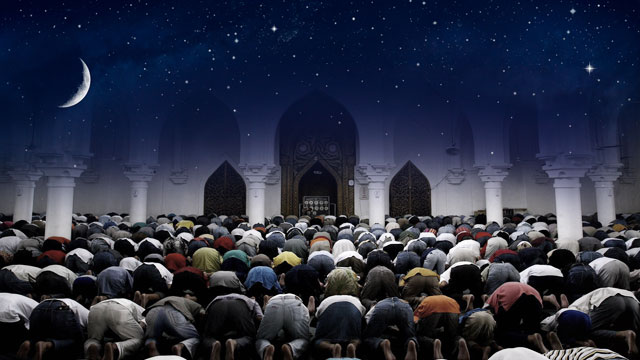SUMMARY
This is AI generated summarization, which may have errors. For context, always refer to the full article.

On Wednesday night, my Muslim friends in the Philippines were surprised with the non-sighting of the crescent moon. This meant that the start of Ramadan would be postponed.
Curious, I started a conversation with my close Muslim friend. I asked her about Ramadan and how she is preparing for the Muslim holy month.
I was surprised by the insights I got from the conversation. It made me understand Ramadan and Islam more.
Here are 5 of the things I learned about Ramadan:
1) Waiting for the crescent moon
Muslims follow their own lunar calendar called the Hijrah. This is comprised of 12 months and is based on the phases of the moon.
One common misconception is that Muslims wait for the sighting of the crescent moon before Ramadan because it is the symbol of Islam.
This is not true. They wait for the crescent moon simply because it marks the start of a new month. According to my friend, one of the biggest misconceptions about Muslims is that they are moon worshippers. They are not.
While the crescent moon is used as a political symbol for Muslim countries, it has no religious meaning for them. It might represent the religion but it has no spiritual meaning attached to it.
In 2012, Filipino Muslims synchronized the start of Ramadan for the entire country. Moon-sighting committees were created to monitor the skies.
2) Fasting month?
Another misconception is that Muslims only fast during Ramadan. Muslims (and Christians) can actually fast any time during the year.
Fasting comes from the more than 1,000-year-old tradition of Abrahamic religions —Christianity and Islam included. Prophets and early believers fast to strengthen their faith and connect better to God.
What makes Ramadan — the 9th month — special then? Muslims believe that the holy books were revealed during this month. Since the last revelation of Allah — the Quran — was also revealed during this month, they pay tribute to it.
3) Personal detoxification
Ramadan is a time for personal detoxification.
Muslims refrain from food, drinks and tobacco from sunrise until sunset for this entire month. They take their breakfast before their first prayer, which is at 4:00 am, and break their fast after their second to the last prayer at around 6:30 pm.
Ramadan is also a fasting of the mind and heart. Muslims not only refrain from food and drinks but more importantly, from bad thoughts, words and actions. This is something Muslims try to do for the rest of the year, making Ramadan a recharge moment for an entire year’s journey of faith.
4) Social aspect
According to my friend, Muslims fast to be in solidarity with the poor. They fast to empathize with those who do not eat 3 times a day and reflect on ways in which they can help.
While Muslims aim to deepen their spirituality during Ramadan, the act of fasting also has a social function. It brings Muslims together as a community of the same faith. When Muslims break fast, they eat together and share their reflections.
As my friend said, it’s the time of the year to go back to one’s roots and be one with the Muslim community.
5) Pillar of Islam
Lastly and most importantly, fasting during the month of Ramadan or Sawm is one of the tenets of Islamic faith. It is 4th of their 5 pillars.
Aside from fasting, charity and good works are encouraged during this month.
The other pillars are Shahada or declaration of faith and trust, Salat or the 5 daily prayers, Zakat or alms-giving and Hajj or pilgrimage to Mecca, the holy land.
From a Christian perspective
I confess myself a Christian. But my beliefs in my religion do not keep me from appreciating the beauty of Islam or any other religion for that matter.
In my travels around Southeast Asia, I have made a lot of Muslim friends. Some even became my closest friends.
From my perspective, Ramadan is a journey toward deepening spirituality and going back to the core of Islamic faith — being faithful to the tenets of Allah and following the example of Muhammad.
I am one with my Muslim brothers and sisters in their spiritual journey in this year’s holy month. Ramadan Kareem! – Rappler.com
Aside from being a journalist, David Lozada is Philippine focal point of the ASEAN Youth Volunteers Network, the official platform of the Committee on ASEAN Youth Cooperation. Follow him @iamdavidlozada
Night sky image via Shutterstock. With file photo from EPA.
Add a comment
How does this make you feel?
There are no comments yet. Add your comment to start the conversation.